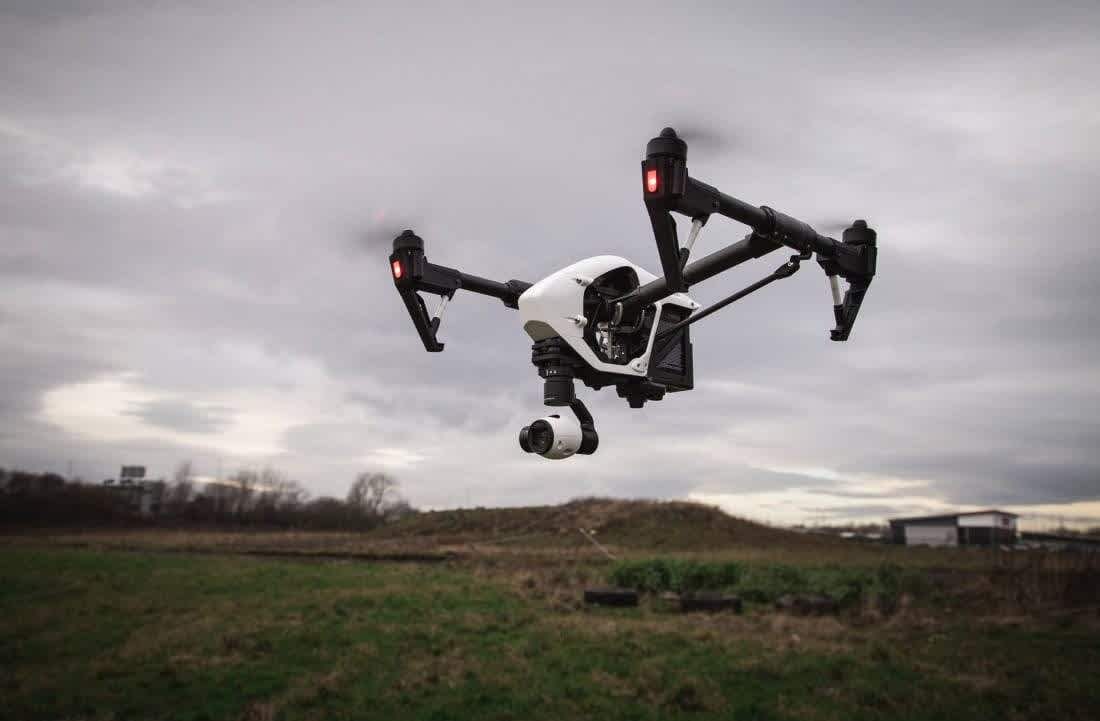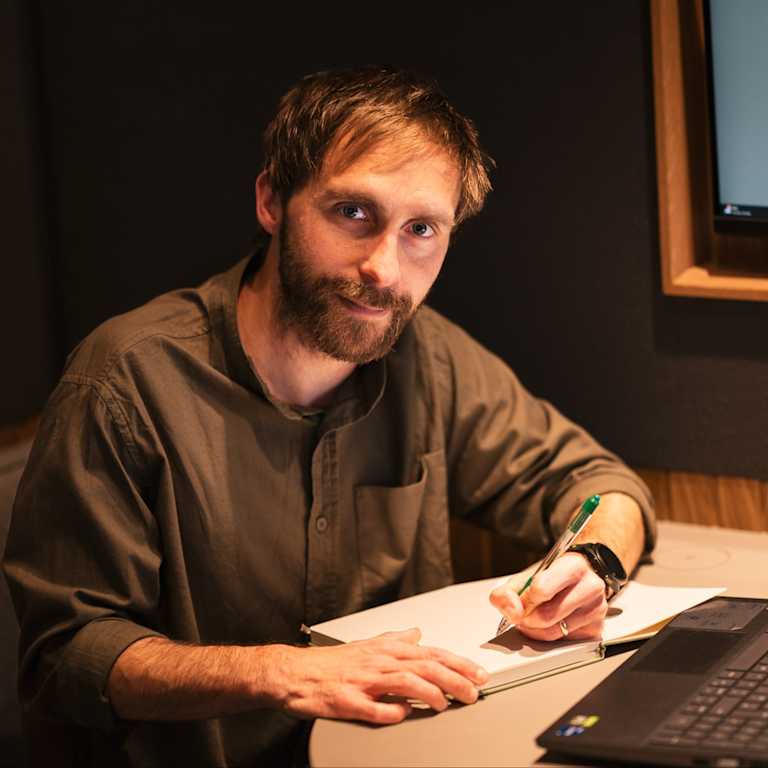
News
Published on 10 Jul 2015
James Willoughby
BNUC, RPQ and the Rest
How to get trained as a drone pilot, Bnuc or RPQ, and get a Permission for Aerial Work (PFAW) from the CAA to carry out commercial work. ... Read More
So you've bought yourself a nice, shiny new drone to play with and you've had great fun flying it around a field, filming your neighbourhood without terrorising your neighbours, and then suddenly you think: "I could make a living out of this". Well you won't be the first person to have done this. At the last count (April 2015) there were 597 commercial Small Unmanned Aircraft operators in the UK and, although that may seem a lot, there's plenty of room for more. The number of uses that drones are being put to grows almost every day. On top of that more and more potential clients are realising that unmanned aerial vehicles aren't just used for getting pretty and dramatic aerial shots for films and TV programmes. Inspire-against-sky-e1436539957559.jpg Heliguy customers are using drones for inspection work on wind turbines, flare stacks, pipelines and power lines. They're flying them over crops, livestock, flood plains and coastal defences and producing maps, 3D models, and plans of road accidents. And it's not just standard cameras that are being used - thermal imaging, multi-spectral and LiDAR devices are also taking to the air.
How do you get a drone licence or a PFAW?
What do you have to do to become a fully fledged commercial UAV pilot or operator? Well as soon as your drone leaves the ground it is in airspace controlled by the Civil Aviation Authority. So the same organisation that governs passenger aircraft, air traffic control and leisure aviation, among many other areas, sets the rules for unmanned aviation. If you have ambitions to set up a small company with yourself as the main drone pilot then you'll have to pass theory and practical exams to get a UAV pilot qualification. Then you'll need to prepare an extensive document on how you plan to conduct your UAV business. It's called an Operations Manual and it's what you will need to submit to the CAA in order to be granted a Permission for Aerial Work (PFAW). Heliguy-drone-flight-test-crop.jpg Once you have your PFAW and all the proper insurance in place you can be up, up and away. However there is an intermediate stage. You can qualify as a commercial pilot by passing the ground school theory exam and the practical pilot assessment. Once you have your pilot certificate you can then work for a company, provided it has its own Operations Manual and PFAW. So how do you start your training? Well you don't even need your own drone, at least in the beginning. Although it does help if you've had some flying experience before the ground school, you won't actually need one for the lectures or the theory exam.
RPQ, BNUC, RPCS, S-FRP, UAPQ - which one to choose?
For a training organisation to be able to instruct would-be drone pilots it has to be approved by the CAA. When it is approved it gains NQE or National Qualified Entity status. Until fairly recently there were only two such organisations in the UK but now there are six. This makes the job of choosing the right training company for you quite a tricky one as there are variations in price, length of time and, to a lesser extent, content. It's difficult to tell your RPQ-s from your RPCS or your BNUC-s from your UAPQ-s. To confuse matters there's also an S-FRP. That's because each NQE can call its pilot qualification what it likes. Inspire-in-warehouse.jpg Flying a DJI Inspire 1 in our warehouse
The unique selling points of a Heliguy course
Heliguy has been running courses since March and already there are plans to expand. We offer a four day course with ingredients that you won't find anywhere else. First of all, because the courses are at Heliguy's headquarters, you'll have access to our staff throughout your training. We even have access to an indoor flying facility. Our sales staff is available to give advice on everything from spare props to a brand new DJI S1000+ octocopter. It’s so easy. You can buy new equipment in between lectures and drive away with it at the end of the course. Our tech team is also on hand to help with any problem you might be having. If it’s something simple, we may even be able to fix it while you’re here. Heliguy-CAA-PFAW-Training-Infographic_v1-2.png Our set-up gives you plenty of opportunities over the time you're with us to ask questions about your present aerial platform or to talk through your plans for new, bigger rigs or accessories. We can also arrange insurance cover which you'll need to have in place for your flight assessment. It's so much easier to sort things out face to face during a coffee break or lunch hour. It's a real one-stop-shop. Because Heliguy is a main dealer for DJI's full range of products, your Day One training will be centred on how drones work, what the key components are, how to get the best out of the DJI hardware and software (including the Pilot app and Ground Station) and advice on best practice. Our customers include hugely experienced commercial pilots who happily pass on tips and hints for relative newcomers. We even organise a drone social on one evening during the course. Trainees, Heliguy staff and local pilots get the chance to chat, exchange stories and advice in a relaxed environment. P1030121-crop.jpg For Days Two and Three of the course we hand over to our NQE to cover the core ground school syllabus - meteorology, principles of flight, aviation law, navigation, safety and flight planning and what's needed for your Operations Manual. On the morning of Day Four it's time for the all important theory exam. It lasts for just an hour and a quarter and you'll need to get 70% or more to pass. While the test papers are being marked there's a chance for a question and answer session followed by a practical flight planning exercise and even an opportunity to get some flying in if the weather's kind.
Writing your Operations Manual - it's important but it's not difficult
One of the most daunting stages can be the writing of your Operations Manual but, although it can be quite a large, detailed document, it's all very logical and straightforward. It's a document that sets out information about your business and how you intend to operate it. You'll need to include information about your staff, equipment, safety and emergency procedures. Some training organisations insist that you finish your Ops Manual before you can take your practical pilot assessment. Others are happy if you've completed the sections sometimes called Flight Reference Cards. They contain the operational safety information that's necessary for you to demonstrate that you're a safe pilot. After a Heliguy course you'll only need to complete your FRCs before taking your flight assessment. You'll have to finish off the rest of the manual before you can apply for a Permission for Aerial Work. S900-on-ground.jpg Your practical flight assessment can be quite nerve racking but it's important to remember that it's a relatively straightforward check of your flight planning and safety skills and your piloting ability. You'll be given an assignment which you'll have to research as you would for a normal commercial job. Before you leave for the location you'll be expected to check weather, flight charts, NOTAMS and, if necessary, contact Air Traffic Control. Once you're on location you'll need to conduct a site survey and risk assessment. When it comes to flying, you'll need to carry out the assignment and be prepared for a couple of simulated emergencies. For example it could be a loss of transmission or another aircraft entering your flying area. You'll then have to carry out simple manoeuvres in GPS and ATTI modes - it's then that you'll be pleased you've put in some ATTI mode practice. Inspire-and-2-Hi-vis-e1441874795995.jpg
Pilot flight assessments all over the UK
The good thing is you can take your flight assessment all over the country at sites in Tyne and Wear, County Durham, Gloucestershire, South Wales, Kent and Devon. So let's assume that you've passed. After finishing your Ops Manual you'll need to apply for your PFAW. You can either do this direct to the CAA or you can use our NQE team to review your application and all the associated documentation. Most people find it's worth paying a little bit extra for peace of mind. Heliguy are currently running courses every month at our Newcastle headquarters. The next one begins on Monday July 27th and, at the time of writing, there are just a few places left. You can register here or call us on 0845 838 8652. banner-caa_pfaw_training.png
